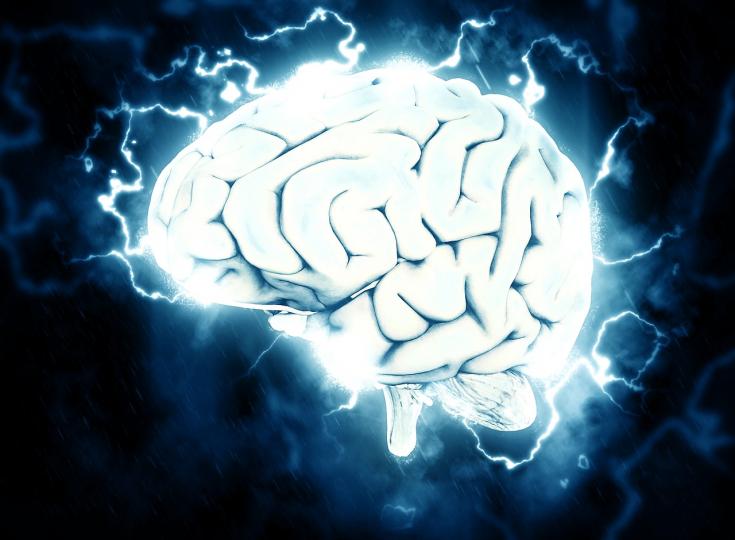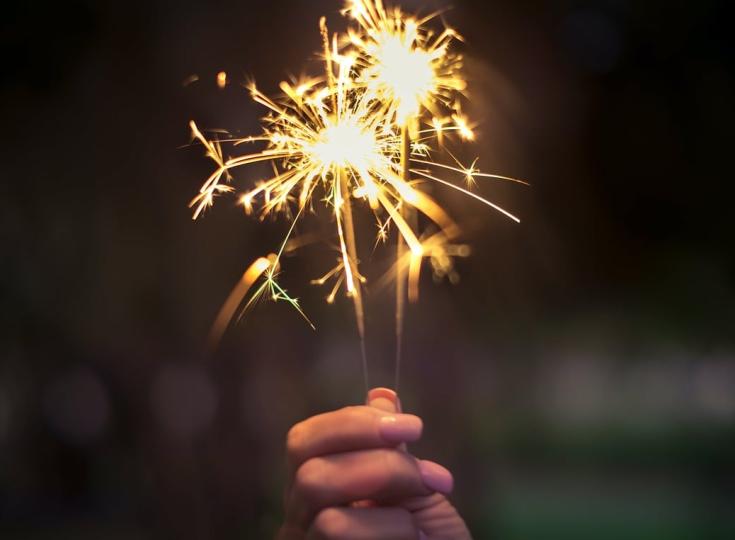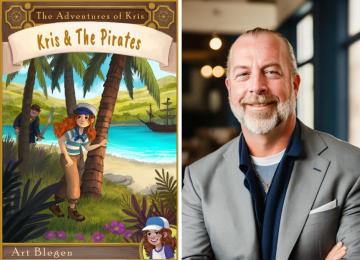Books About the Brain - Recommended by Abigail Marsh

We chat with Abigail Marsh, professor of Psychology and Neuroscience at Georgetown University about the human brain and how it works. She recommends 5 very interesting books on this topic.
Please tell us a bit about yourself and your work.
I am a Professor of Psychology and Neuroscience at Georgetown University, and I study the basis of care and compassion. In other words, I'm interested in understanding the answer to questions like: How do people understand what others think and feel? What causes us to care about others' welfare? I use both brain imaging and behavioral research to answer these questions. In addition, I study special populations of children and adults who show unusually high or low levels of care and compassion, like people who donate kidneys to strangers, or people with psychopathic personality traits.
Your first book recommendation is "Man who mistook his wife for a Hat", which deals with a lot of case histories. What aspect of this book made the biggest impression on you?
Most of us don't spend much time thinking about our ability to recognize people's faces. It's an ability we take for granted. I read this book as a teenager and was really astonished to read the case studies that made it clear that ANY capacity a human has, psychologically--whether it be memory, emotion, intelligence, or face perception--can be mapped onto cold, hard, physical processes inside the brain. And that those processes can be knocked out by a brain injury, or sometimes a congenital condition. I definitely trace this realization to my own interest in discovering the neural processes that give us the ability to care about others. That capacity reflects some physical (and chemical) process in our brains, which I find amazing.
Why is it so important to hear individual stories when it comes to mental health issues?
In general, it's easy to discount the welfare of people when we reduce them to abstractions and generalities, as inevitably happens when we talk about groups of people, rather than individual people. No one can really empathize with an abstraction. Empathy is a really one-on-one process, and one of the easiest ways to empathize with any individual is to hear their firsthand story. This is probably the reason that there is a connection--seemingly--between empathy and reading high-quality literature that depicts people's internal lives well.
Next up is "Are We Smart Enough to Know How Smart Animals Are?" What struck you about this book?
We live in a time when I think appreciation is increasing for how much humans share with animals. It's among the reasons laws protecting animal welfare continue to become stricter and more comprehensive. But I think it's important to understand animals better because recognizing how much we share with them helps us understand our own natures better, too. I think this book promotes that goal.
How does our perception of our own intelligence change as we discover more about animal intelligence?
It makes us a little more humble, I hope. And I also hope it fosters a greater sense of ourselves as intricately and inevitably connected to the diverse, beautiful world of animal life that surrounds us, rather than separated from them in any meaningful way.
The Blank Slate is your next choice - why is this book important when we look at the brain?
There is a persistent and widespread but completely false belief out there that all variation in human traits and behavior is attributable to life experiences and/or effort (e.g., the false idea that the only difference between high achievers and low achievers in a given field is how much effort and time they put in... the whole "10,000 hours" stuff). Not only is this clearly inaccurate belief frustrating to me from my perspective as a scientist and teacher, but I think it does real harm to individuals and society. We cannot, for example, make progress in treating most medical and psychological conditions without considering both their environmental and genetic bases.
For example, I study children with serious conduct problems, like persistent and severe aggression and delinquency. Many of these children's parents believe that it must have been their own insufficient parenting that caused these problems in their children. Even parents who are trying their hardest end up feeling tremendous guilt and shame as a result. But we know that persistent antisociality in children is roughly 50% attributable to genetic factors, and much of the rest is due not to parenting, but to idiosyncratic factors children experience (e.g., happening to fall in with a delinquent peer group). Blaming parents or focusing on parenting alone is not going to help these children. That's just as true for children with serious antisociality as it is for children with autism or ADHD. Just as people have started accepting that autism is not caused by "refrigerator mothers" but has a strongly genetic basis, so we need to accept that is true for nearly every other human variable. This is clearly supported by the data, and will help us develop more nuanced, sophisticated, and personalized treatments moving forward. (Although I should also emphasize that even when parenting is not the cause of these disorders, behavioral therapies implemented by parents can help treat them, like Applied Behavioral Therapy for autism, and various parenting interventions for conduct problems)
Why, would you say, is this book still controversial today?
Because, as the book nicely details, many people across the political spectrum would prefer to believe that we all are born with identical capacities and potential. It seems fundamentally unfair that not all children are born with an equal capacity to develop high degrees of compassion, or athletic achievement, or cognitive intelligence. And it's inconvenient for those who believe that all success in life is due to hard work that some people, no matter how hard they work, will struggle to achieve in some domains. And it is unfair and inconvenient--deeply. But nature doesn't really care about fairness or convenience. And it won't do us any good to ignore the data we don't like.
I should emphasize, though, that it's impossible to known what any individual's potentials might when they are born. (Which is not the same as saying that every individual has equal potential). Because of that, an ideal society would give every individual the opportunity to benefit from whatever undiscovered talents and capabilities and potential they possess.
You also picked Living without an Amygdala - why is this brain region so important to human functioning?
The amygdala is an incredibly important and interesting region, but because it's buried deep in the brain, you very rarely see cases where only this structure is destroyed and nothing else. This book details the case of SM, who lost only her amygdala, and shows us the profound and fascinating effects of this loss on her social and emotional life, in particular how she completely lost her ability to fear. For most of us, fear is an important and often distressing or disabling emotion, so it's incredible to learn about what life would be like without it. Better in some ways, it turns out, but certainly worse in others. We need fear!
Last up is Affective Neuroscience: The Foundations of Human and Animal Emotions. This was written as a textbook, but does not read like one. Please tell us more.
This book draws very detailed connections between the brains, social behaviors, and emotional lives of humans and other mammals, not just primates but even mice and rats. Reading it and teaching it to my students caused me to think about human emotions in a totally different way--not as phenomena unique to us, but phenomena we share with many other animals. For example, did you know rats like being tickled, and even laugh if you tickle them? Panksepp is quite famous for discovering this--he deduced you need a special detector to hear their ultrasonic chuckles of mirth. Rats are also wonderful and devoted mothers and friends who will often help other rats in distress even when it doesn't benefit themselves. So we can learn a lot from studying their brains and behavior about many profound and universal emotions and social experiences.
Why is it pivotal to study the origins of human emotions when looking at the brain and the mental issues?
As Aristotle put it, "The pursuit of pleasure and the avoidance of pain is the first principle; it is for the sake of this that we all do all that we do.” In other words, when we say something “matters” what we mean is that it causes emotion in us--emotions tell us whether something is good or bad, important or unimportant. Understanding emotion is the key to understanding nearly everything else about human experience.
Where can readers discover more about your work or interact with you?
They can follow me on Twitter (@aa_marsh) or check out my website: www.abigailmarsh.com or my recent book THE FEAR FACTOR.






